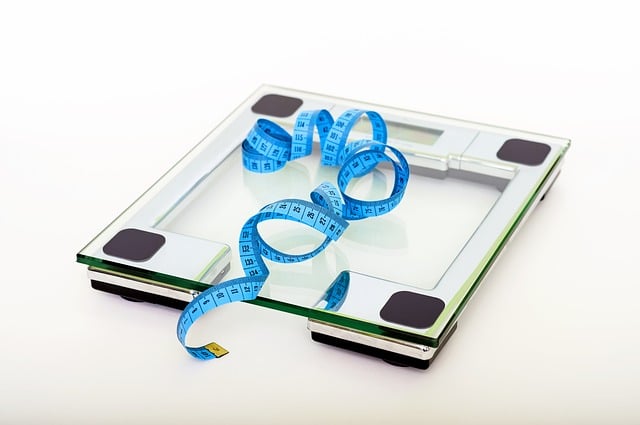So you’ve done it. You’ve signed up for Stronger U. You’ve filled out your intake form, heard from your new coach, and begun the process of trying to wrap your brain around all that comes with counting macros. Sure, it might feel like a lot at first. I mean, who would have expected that you would need to have a scale to weigh both yourself AND your food, right? Or that food can actually be broken down into more categories than simply just saying, “it’s got calories”?
Like I said, it’s a lot. But you’re okay with it being a lot. Because you’re here to make a change. Here to learn how to eat for your life and your goals, lose weight, or simply just be able to play with your kids and grandkids for years to come.
And it’s that whole “here to lose weight” thing that we want to talk about today.
See, when it comes to weight loss, we tend to have outsized expectations for how it should happen. Whether we’re consciously aware of it or not, our idea of what weight loss actually looks like and how it happens is heavily influenced by things like commercials telling sweet-sounding success stories, stories from friends and family, and magazine covers that promise unbelievable results.
We all have expectations for various things we will do or try. After all, those expectations help push us along in some ways. Expectations are standards for the future. They’re part of the bargain we’re making with our time and effort. Our expectations are what we look to get back in return for spending our time and energy working on something.
But those outsized expectations in the world of weight loss tend to do more harm than good. They send the wrong message about what’s actually possible in weight loss, and they create a wholly unrealistic timeline.
For example, that magazine cover up there? Not only does it talk about losing “half your body weight without trying, but” it also, in a bit smaller print, mentions, “drop 28lbs in a month!”
Have you ever thought about what reading a headline like that does to someone who has weight to lose and is contemplating starting a weight loss journey?
It creates an implicit expectation. It sets this unspoken standard that 28lbs in a month is what should happen when someone tries to lose weight. Because, after all, if you can make that kind of weight loss happen, thanks to some generic advice found within between the pages of a magazine, it must be foolproof. It must be so foolproof that anything less than what the cover says is an abject failure.
And when someone doesn’t lose 28lbs in a month, how do they begin to feel? Like a failure. Like something within them is broken. Like weight loss just isn’t actually in the cards for them. Before we know it, that failure is repeated. With each failure, that self-fulfilling prophecy that weight loss just isn’t for them compounds more and more until it’s a narrative that is almost impossible to shake. In reality, they might’ve just needed a bit more time, a bit more effort guided in the right directions, and a supporting hand to help them along.
So why don’t we try to set some realistic expectations to prevent that self-fulfilling prophecy from ever becoming a reality? These aren’t expectations you’ll read on the cover of a magazine while you’re checking out at the grocery store. These are the real expectations that nobody tells you, but they’re the expectations that we think you need to hear.
What to expect when you’re expecting… to lose weight.
Removing all time-focused goals is probably a good idea.
I’m all for someone who wants to lose X pounds by their wedding date, the big reunion, or whatever. Those sorts of external motivators can be helpful for plenty of us, especially when we need something to jump-start our efforts. But do you want to know the proper way to view most of the external motivators and time-focused goals?
Those external motivators should be used to push us to take the first step. Then they should be something that we almost completely forget about.
Of course, I’m not telling you to forget about your wedding. I’m not a marriage counselor, but I think that’s probably an ill-advised way to spend the months leading up to your wedding. You need to try your best to remove this thought that “I need be at X weight by this day” because it sets the wrong expectation.
See, the reality is that we can’t actually control what the scale will do daily or even on a weekly basis. The scale does funky things, and it fluctuates like crazy. We can get an idea of the trends and where those trends are heading, and that’s why we like looking at the weekly averages on the spreadsheet when we do check-ins with our members. But predicting what actual numbers will show up and when they will show up? That’s predicting the future, something that we’ve never been very good at.
On top of that, it’s important to remember that the data is pretty clear that an acceptable rate of sustainable weight loss for most people looks like 1-2lbs/week, on average. Even then, that pace has a shelf-life. After all, the rate at which we lose weight depends on how much weight we have to lose, how long we’ve been dieting, how aggressive our approach we’re being, our body composition, and a whole host of other factors. If you want to compare it to the magazine cover up there, about ¼ – ½ of what was promised. See how easy it is to feel like a failure thanks to misguided expectations?
The scale is out of our control. You might see it read a few pounds higher one day simply because you ate later at night than expected and ate some saltier foods than normal. Of course, you might’ve kept all your numbers in check along the way, but still, the scale is higher. Does that mean you’ve gained any body fat in those 12 hours since you last ate and then stepped on the scale? Of course not. But you still can’t control the number that scale will show.
What you can control, though, is the decisions you make, and those decisions lead to the numbers we see on the scale. And the more we can influence our choices, the more we’ll ultimately get to a place where we’re happy with what we see on the scale and in the mirror.
You’re going to screw up at some point.
If you ever talk to someone who has screwed up on their diet, a couple of things become very clear. 1) Guilt can be a powerful feeling. 2) For some inexplicable reason, people like to think they’re robotic automatons in their decision-making. So they tell themselves they are never capable of making a less-than-ideal choice.
Now, obviously, we’re not robots. Just as evident, though: we will screw up at some point anytime we try to change something about our lives. You have to accept that that’s a fact before you can ever actually move forward. Weight loss is a world that can feel hopelessly complicated at times. We have environmental factors to deal with, social pressures, societal expectations, our very own cravings, and temptations. Then, we become more confused about what foods are actually good for us with each passing week. So, of course, you’re bound to screw this up.
But does that make you a screw-up? Of course not. It makes you a human. And yet, for some reason, we still have this expectation that we’ll never screw up. That we’ll never have an off day. Each day will be 0-0-0 with our numbers, and each check-in will show us being exactly 1.5lbs down. Then those things don’t happen, and suddenly the downward spiral starts. We’re screwed up and ruined all of our hard work when it might just be an expectations issue.
Going off of your plan because of an unexpected happy hour, a big night out, a wedding, or simply because you didn’t stick to the plan for the day offers nothing more than an opportunity. It gives you a chance to look back the next day and think about the choices you made, identify 1-2 areas where you’d like to improve that approach in the future, and then move on with the knowledge that you can make those improvements. Going off-plan isn’t a referendum on you as a human being.
People will probably say things to you.
Friends will comment, “Oh, so you’re still on that diet?” Family will say things like, “Can you eat this on your diet?” And co-workers will probably say something along the lines of, “I really need to lose weight, but I just can’t imagine not being able to eat at Cinnabon every day.”
And really, that might just be the beginning of it. When we start a diet and start trying to lose weight, it seems like people come out of the woodwork to give us their unsolicited thoughts and opinions on what we’re trying, everything they’ve ever tried, and maybe even why they don’t think what we’re doing will work.
We should expect this, even if it’s not something we will always enjoy. Being on the receiving end of these comments doesn’t always feel the best. If it’s an entirely unexpected thing, a negative comment from someone close to us can be the trigger we need to throw in the towel.
But here’s the thing that we have to remember when people comment on us: in the vast majority of cases, when someone says something to us about our food choices or our diets, they’re simply projecting their own thoughts or biases onto us. Very rarely does someone’s comment actually have anything to do with you. Instead, it has more to do with how what you’re doing has made them feel.
Weight loss is a really fickle and complicated process. It’s not easy at all. When someone starts to work at it and see success, that’s not just something that they and they alone can see. Everyone else in their world can see it too. They can see the decisions that change daily and see the physical changes that follow. That makes all of the witnesses to this change feel some type of way because they feel some kind of way about themselves and what they’ve attempted in the past. This inevitably invites a bunch of comments, some of which we can laugh or shrug off, but others that might stick with us for weeks on end.
This is why I think the more we can recognize that this is normal and doesn’t actually have anything to do with us, the better.
You know that thing you’re hoping you don’t ever have to actually do on this program? It’s probably a good idea for you to try it.
Does food prep sound like a nightmare? Does grocery shopping sound like an exercise in getting as miserable as possible? Maybe planning a day out in MyFitnessPal sounds like as much fun as jumping into a pit of jellyfish. But, no matter what it is, we all have something like it. We all have these “things” that it seems like everyone does on their way to being successful in their weight loss journey that we just couldn’t possibly imagine ourselves doing.
Well, that thing that you just can’t possibly imagine yourself doing? That’s probably worth trying at some point or another.
It’s often said that success leads to clues, and here at Stronger U, we’re fortunate enough to see many of the same clues show up repeatedly. It just so happens that some of those same clues are things that more than a few of our members swore they’d never ever do (how many people had this thought around using a food scale?).
I don’t think that you need to try whatever it might be simply because I think it works. People have lost weight never stepping on the scale, and they’ve lost weight stepping on the scale every day. They’ve lost weight by ordering meals from a meal-prep service and grocery shopping for every meal.
The point is that we all have barriers. Things exist to keep us in our old shells and stay our same selves. But staying the same isn’t why we’re trying to lose weight, right? So it stands to reason that trying new things, things that the old us might hate is a good exercise. It sets the right expectations. The expectation is that we’re willing to give something a try, even if we hate it or think we’ll be bad at it. Because in that trying, we provide ourselves more opportunities to learn.
We all have a thing. A thing that we see a lot of people doing on their journey, and we – for some reason – just can’t imagine ourselves ever doing that. Give that thing a try this week. Lean into the idea that you’re doing something you don’t think you need to do. And give it a try because if everything you were doing up to this point was already working, you probably wouldn’t be here in the first place.
And all along the way, as you try new things, whether the comments you get from the people in your life, manage your expectations. Don’t let the too-good-to-be-true promises of magazines tell you what you should expect to happen. Create your own expectations. Expectations are grounded in who you are, what matters to you, and what you want to accomplish. Because when you’re the one writing your definition of success, it’s impossible to fail.








